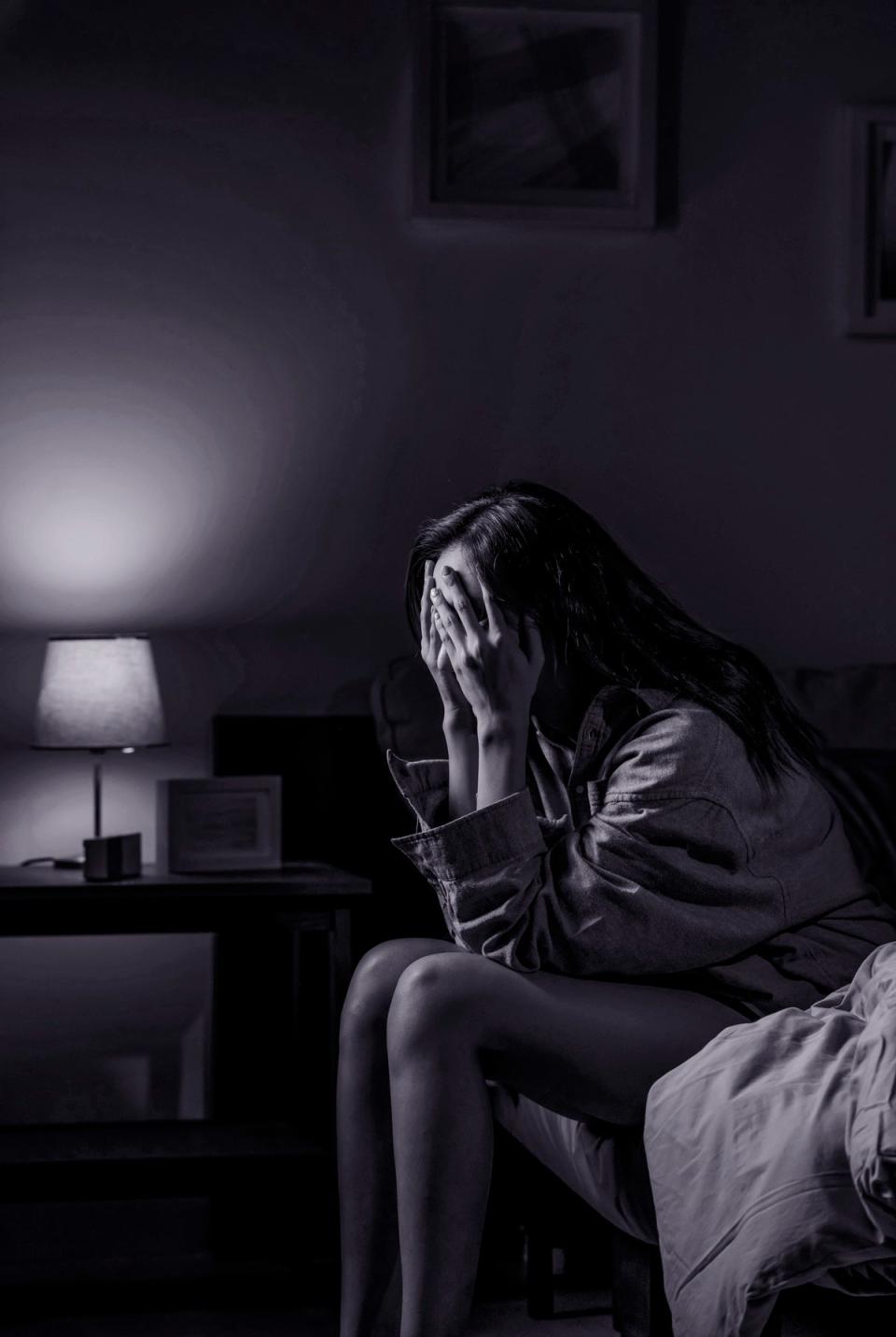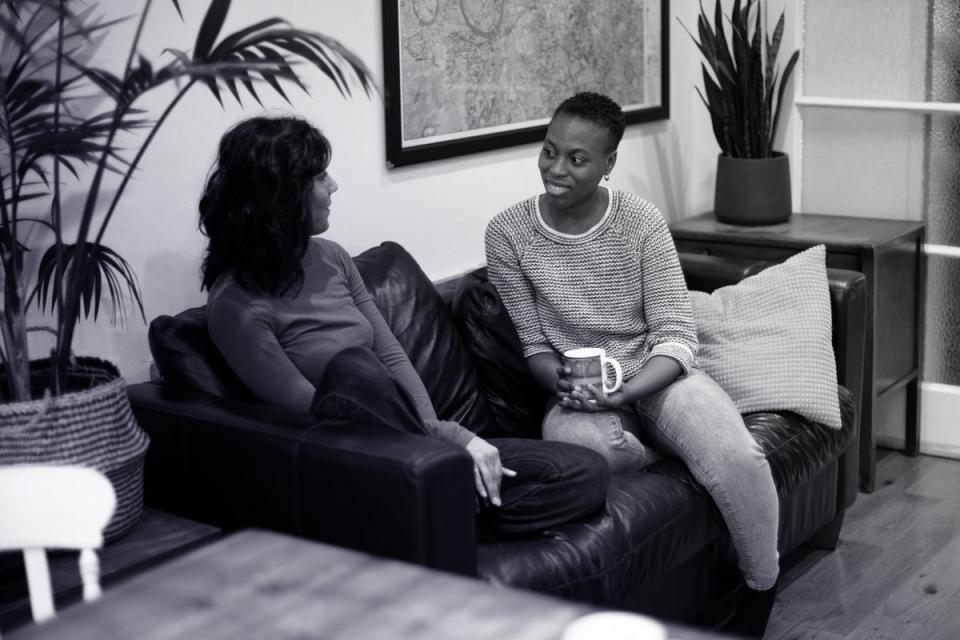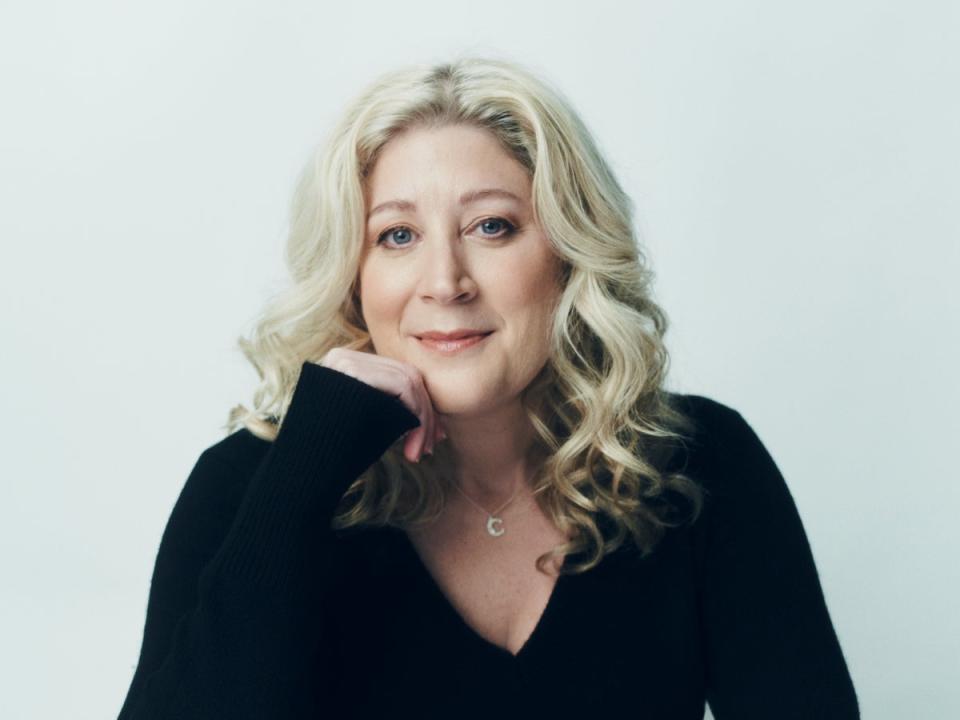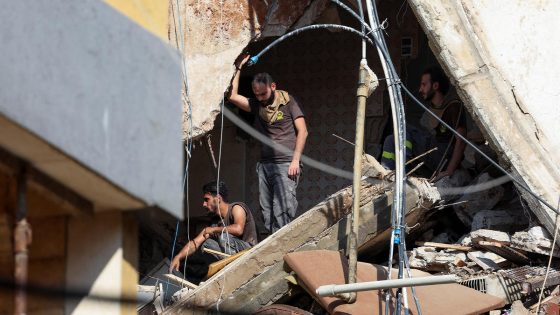More than half of domestic abuse survivors face homelessness after being turned away from refuges due to a chronic national shortage of spaces.
The latest figures show around six in 10 women fleeing domestic violence who sought a space in a refuge in England over a year were denied a place.
Data from the Office for National Statistics shows 27,754 women were referred to a refuge between April 2022 and March 2023 but only 10,824 were accepted, with 16,930 women left with nowhere to go. This is the equivalent of one woman being turned away every two hours.
The shocking statistics come as The Independent launches its Brick by Brick campaign in partnership with charity Refuge to raise £300,000 and build a house for women escaping abusive partners.
Be a brick, buy a brick and donate here or text BRICK to 70560 to donate £15

Exclusive data from Refuge shows increasing numbers of calls to the National Domestic Abuse Helpline which it runs are seeking referrals to refuges to escape their abusers, rising from 5,450 to 6,086 between 2020 and 2024.
Just this year so far, the helpline has supported 49,787 calls for help, with 75 per cent of those being from survivors of domestic abuse.
The charity revealed that it is referring a record number of victims to local councils across England and Wales for homelessness – a tripling from 120 to 407 over the same four years.
Abigail Ampofo, interim chief executive of Refuge, said many of those being denied a safe place were desperate: “For some, there may be the opportunity of getting emergency temporary accommodation from the local authority.
“Others can stay with friends and family. There will be people who need to sofa surf with them. A lot of female rough sleepers’ homelessness was triggered by domestic abuse.”
The latest recorded number of refuge bed spaces in England from 2023 was 4,385, which is 22 per cent below the minimum total recommended by the Council of Europe.
Nicole Jacobs, the domestic abuse commissioner for England and Wales, warned that escaping domestic abuse can be the “most dangerous time” for victims.
“Many will be at very real risk of serious harm and even homicide,” she told The Independent. “That victims and survivors are being turned away from safe housing and support at this urgent time should concern us all.”
That victims and survivors are being turned away from safe housing and support at this urgent time should concern us all
Nicole Jacobs
Jess Asato, MP for Lowestoft, who worked in the domestic abuse sector for years, said turning victims away from refuges places them at risk of further abuse or being murdered by their partner.
“Every woman who is turned away and requires a safe, protected place like a refuge will be put at risk of further abuse or even murder,” she said.
“Domestic abuse victims should be able to remain safely in their home, with the perpetrator leaving, but in some cases, the victim has to flee to a safe, secure refuge because the risk to their life is so high.”
The MP said the domestic abuse sector has been “under huge pressure” for decades, with increasing numbers of charities struggling with funding.


Domestic abuse refuges, which house many women at risk of murder if they remain at home with their abuser, are located in secret locations and have strict security measures to ensure their residents remain safe.
The latest data from domestic abuse charity Women’s Aid reveals a postcode lottery when seeking a bed in a refuge.
While the number of spaces was 2 per cent above the Council of Europe’s minimum recommendation in London this figure was 39 per cent below in the South West.
Across the country, it is not much better with the figure 36 per cent lower in the South East, 38 per cent lower in the East of England, and 35 per cent lower in the North West.
Charlotte Kneer, who previously managed 11 refuges across Surrey, said the 2021 Domestic Abuse Act had improved access but the situation was still not good enough as she branded the figures “horrifying”.
Ms Kneer, a domestic abuse survivor whose violent partner was jailed for seven years in 2011, warned: “Unless you have lived in that situation where you fear every day it could be your last day, you don’t understand the absolute desperation these survivors feel.


“As a society, it feels so callous we are turning our backs on the survivors who desperately need us.”
Ms Ampofo, of Refuge, said it is frustrating and upsetting having to turn women in need of support away.
She added: “I remember a victim who called the helpline. She had been able to flee and she fled very quickly. When she got somewhere safe, she called the helpline – she was in the park with her kids. It was 11pm. Due to her needs, she required urgent safe accommodation.
“It took a few hours for her to get help. This meant she was in an unsafe and unsuitable situation for far too long. They had literally nowhere else to go. She had nobody.”
Unless you have lived in that situation where you fear every day it could be your last day, you don’t understand the absolute desperation these survivors feel
Charlotte Kneer
She said support for domestic abuse victims has long been “chronically underfunded” in England and Wales – adding ministers have not backed the longer-term funding of services which has generated “massive gaps” in provision.
“Right now, thousands of women in the UK are scared for their lives in their own homes,” she added. “It takes an enormous amount of courage – and planning – to flee an abuser.”
A government spokesperson said: “These figures are appalling and highlight that domestic abuse is a scourge on our society. We thank the National Domestic Abuse Helpline and all refuge services for the vital work they do to keep women safe.
“We have said that the scale of violence against women and girls is a national emergency and our mission is to halve this violence within the next decade by improving policing and the criminal justice system, relentlessly pursuing dangerous offenders and providing sustained support for victims.”
Please donate now to the Brick by Brick campaign, launched by The Independentand charity Refuge, to help raise £300,000 to build a safe space for women where they can escape domestic abuse, rebuild their lives and make new futures.
Anyone who requires help or support can contact the National Domestic Abuse Helpline which is open 24/7 365 days per year on 0808 2000 247 or via its website
Source Agencies



